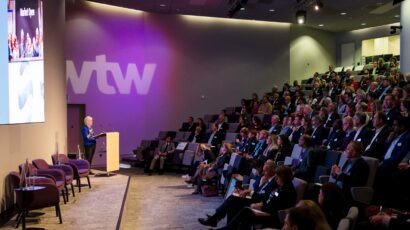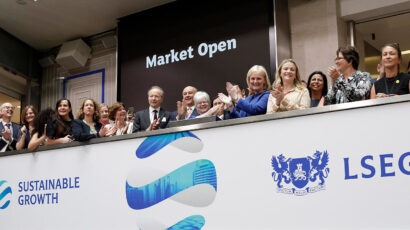News

IASB proposes illustrative examples to improve reporting of climate-related and other uncertainties in financial statements
This 2024 article from the International Accounting Standards Board, written 31 July 2024, proposes examples of improved reporting of climate-related and other uncertainties in financial statements.

Plans beyond pledges: Key insights on the role of boards from flagship event
An orderly transition to a low-greenhouse gas and climate-resilient economy demands robust transition planning led by effective and courageous climate leadership by boards. Read the summary from WTW on key insights on the role of boards, as well as perspectives from corporates and investors, from our flagship event.

Flagship event launched the Transition Planning Toolkit
Last night we launched our new Transition Planning Toolkit for non-executive directors at our flagship event attended by more than 300 Chapter Zero members, partners and supporters.

Results of the 2023 impact survey with Chapter Zero members
In July 2023, we surveyed Chapter Zero members in association with our strategic insights partner, Kantar. Our annual impact study helps us understand the pace of change, the critical boardroom dilemmas, and the live needs of our community. Take a look at the results.

An announcement at the LSEG Market Open
We were proud to be invited to the London Stock Exchange for Chapter Zero Chair Julie Baddeley to open the market and announce the development of our Transition Planning Toolkit.

Chapter Zero Chair takes lead global role
Chapter Zero’s Chair Julie Baddeley has been appointed as Chair of the global Climate Governance Initiative.

Marking four years of Chapter Zero
Last night we marked four years since the formation of Chapter Zero with the help of more than 150 of our members, partners and supporters in an event at the Banking Hall.
